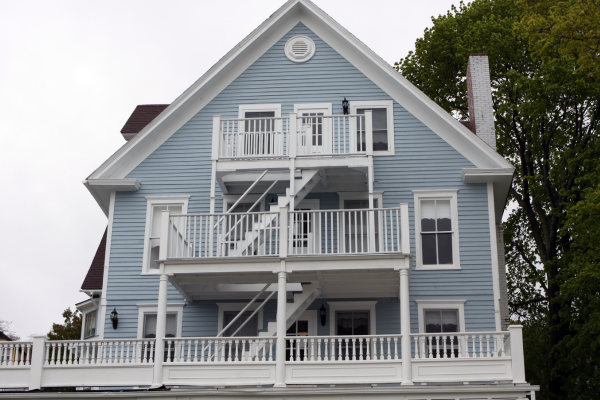Rental Property - What Is It?
Let’s start with what is typically considered a rental property.
If you purchase a property as an investment, and do not intend to occupy it at any time, but rather, intend to have someone else occupy it on either a full or part-time basis, for a fee, then this would be considered a rental property.
A homeowner property, on the other hand, is one that you occupy on either a full or part-time basis, i.e., it’s either your primary or secondary (or seasonal) home.
If you did not purchase your property exclusively as an investment, but primarily for your personal use, then notwithstanding the fact that you may occasionally rent it out, it would generally not be considered a rental property.
What Type Of Insurance Is Required?
Once you have a formal lease agreement in place, signed by you and your tenant, your property no longer qualifies for a standard homeowners policy.
Homeowners insurance is designed and intended for individuals who actually occupy the dwelling, either as a primary or secondary residence.
A standard homeowners policy has a “where you reside” clause, which mandates that the property actually be one in which you reside.
It is primarily for this reason, and others, that dwellings purchased as investment rental properties need insurance coverage specifically designed for rental properties.
Rental Property Insurance
Rental property insurance, also known as landlord insurance, is designed specifically for dwellings purchased exclusively as investment rental properties.
In additional to not including the typical “where you reside” clause that’s part of a standard homeowners policy, rental property insurance provides coverages that a standard homeowners policy does not.
These coverages include protection against lost rental income in the event extensive damage or repairs to the dwelling require the tenant to move out for a period of time.
Rental property insurance also includes liability protection for any claims that may arise from rental activities.
Habitational Insurance
Depending on the type of rental property you own, you may need more than a typical rental property policy. You may need what is referred to as Habitational insurance.
This type of insurance is designed to provide protection to investors of commercial residential properties, including apartment buildings, condominiums, and other multi-unit dwellings.
While conceptually habitational insurance is the same as rental property insurance, it is more comprehensive in nature to meet the needs of the commercial rental property investor, vs. the individual who may invest in only one or two rental properties.
Conclusion
No matter what type of real estate investor you might be, you will need special insurance coverage designed specifically for your investment properties.
If your local insurance agent is not well versed on the nuances of real estate investment properties, then look for an agent, like BR Risk Group™ Specialty Insurance, that specializes in real estate investment properties, including rental properties.
****This article is intended for informational/educational purposes only. It is not meant as, nor should it be interpreted as, actual investment advise regarding real estate investing of any kind, including rental property investing*****

